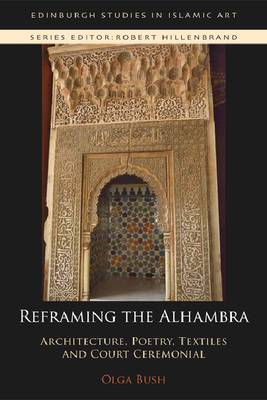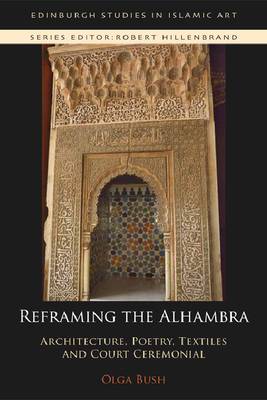
- Retrait gratuit dans votre magasin Club
- 7.000.000 titres dans notre catalogue
- Payer en toute sécurité
- Toujours un magasin près de chez vous
- Retrait gratuit dans votre magasin Club
- 7.000.0000 titres dans notre catalogue
- Payer en toute sécurité
- Toujours un magasin près de chez vous
Description
The Nasrid builders of the Alhambra - the best-preserved medieval Muslim palatial city - were so exacting that some of their work could not be fully explained until the invention of fractal geometry. Their design principles have been obscured, however, by the loss of all archival material. This book resolves that impasse by investigating the neglected, interdisciplinary contexts of medieval poetics and optics and through comparative study of Islamic court ceremonials. This reframing enables the reconstruction of the underlying, integrated aesthetic, focusing on the harmonious interrelationship between diverse artistic media --architecture, poetry and textiles -- in the experience of the beholder, resulting in a new understanding of the Alhambra.
Spécifications
Parties prenantes
- Auteur(s) :
- Editeur:
Contenu
- Nombre de pages :
- 344
- Langue:
- Anglais
- Collection :
Caractéristiques
- EAN:
- 9781474416504
- Date de parution :
- 26-02-18
- Format:
- Livre relié
- Format numérique:
- Genaaid
- Dimensions :
- 175 mm x 246 mm
- Poids :
- 1038 g

Les avis
Nous publions uniquement les avis qui respectent les conditions requises. Consultez nos conditions pour les avis.






